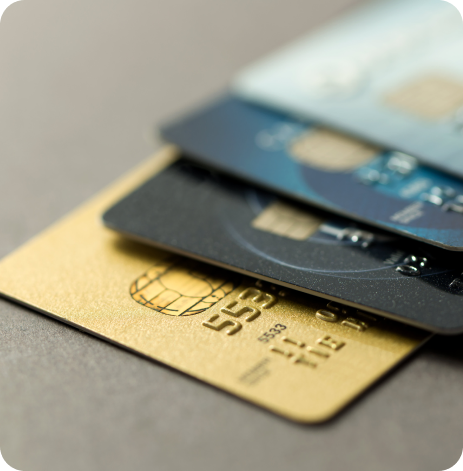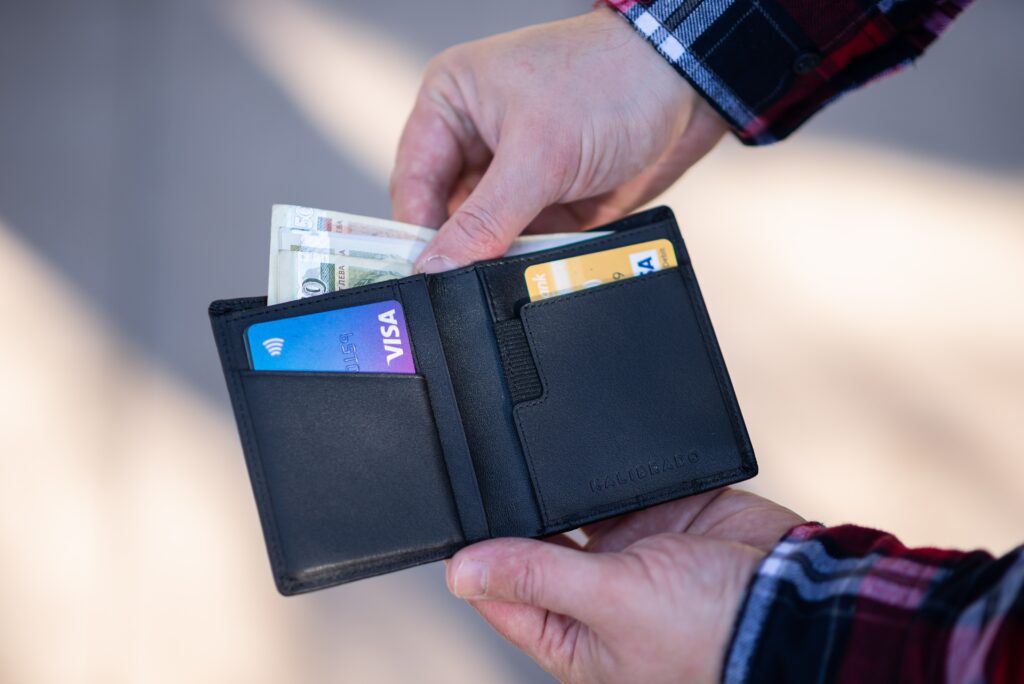Credit Cards 101: A Beginner’s Guide to Building and Managing Credit is an article intended as a comprehensive article that helps people that are who are new to credit cards. The article covers topics such as how to choose the right credit card, building credit responsibly, managing credit effectively, and avoiding common pitfalls.
By following the outlined guidelines, we hope you’ll feel a bit more comfortable getting started in the sometimes complicated world of credit cards and feel better about making informed financial decisions.
The Importance of Credit
Credit is crucial in today’s world as it quite literally opens doors to opportunities, allowing individuals to make significant purchases, build a strong financial foundation, and ultimately shape their future financial success with a solid credit history and credit score.
Understanding the basics of credit cards is an essential step in building and managing credit effectively.
First, it’s important to compare different credit card options to find one that suits your needs and spending habits. Look for low-interest rates, rewards programs, and favorable terms and conditions. Once you’ve chosen a credit card, it’s important to use it responsibly. Make sure to pay your bills on time and in full each month to avoid interest charges and late fees.
Additionally, keeping your credit utilization ratio low by only using a small percentage of your available credit limit can positively impact your credit score. Lastly, regularly monitoring your credit report and disputing any errors or inconsistencies is crucial for maintaining a healthy credit profile. By following these guidelines, you can establish a solid credit history and be on your way to financial success.
Benefits of Having a Credit Card
Having a credit card offers numerous advantages, including the ability to build a solid credit history, enjoy convenient payment options, and gain access to rewards and perks that enhance your overall financial experience. Credit cards provide a convenient way to make purchases both online and offline, eliminating the need to carry large amounts of cash. Additionally, they offer protection against fraudulent transactions, giving you peace of mind when shopping. It is important to understand the responsibility that comes with owning a credit card, such as making timely payments and keeping track of your spending. By using credit cards responsibly, you can establish a positive credit history, which can be beneficial when applying for loans or mortgages in the future. Finally, always remember to choose a credit card that aligns with your needs and financial goals, whether it’s a cashback card, travel rewards card, or a card with a low-interest rate.
Choosing the Right Credit Card
Understanding different types of credit cards
When it comes to credit cards, there is a wide array of options available, each with its own unique features and benefits. From cashback cards to travel rewards cards, understanding the different types can help you find the perfect fit for your financial goals.
Some credit cards offer introductory 0% APR periods, allowing you to make purchases or transfer balances without accruing interest for a set period of time. These cards can be beneficial if you have a large purchase or existing balance that you need time to pay off. On the other hand, rewards credit cards offer incentives such as points, miles, or cashback for every dollar you spend. These rewards can add up over time and be redeemed for various perks, such as travel discounts or statement credits.
Secured credit cards are another option, especially for those with limited or poor credit history. These cards require a security deposit, but they can help you build or rebuild credit when used responsibly. Lastly, co-branded credit cards are partnered with specific retailers or organizations, offering exclusive benefits or discounts when you use the card for purchases within their network.
Understanding the different types of credit cards can empower you to make informed choices and maximize the benefits available to you. If you’re looking to consolidate your debts and reduce interest payments, a balance transfer credit card could be a suitable option.
These cards allow you to transfer your existing credit card balances to a new card with a lower or zero interest rate for an introductory period. This can provide some financial relief and help you pay off your debts faster. Additionally, cashback credit cards offer a percentage of your spending back in cash, which can be a great way to earn some extra money on your everyday purchases. Some cashback cards also provide higher cashback rates for specific spending categories, such as groceries or gas.
Lastly, travel credit cards are designed for frequent travelers and offer benefits like airport lounge access, travel insurance, and bonus points for travel-related expenses. These cards can be a valuable tool for those who frequently fly or stay in hotels. With the right credit card, you can not only manage your finances effectively but also enjoy various rewards and perks along the way.
Factors to consider when selecting a credit card
- Interest rates and fees: Look for a card with competitive rates and minimal fees to save money in the long run.
- Rewards and benefits: Find a card that aligns with your spending habits and offers rewards or perks that suit your lifestyle.
- Credit limit: Consider a card that offers a suitable credit limit based on your financial needs and ability to manage credit responsibly.
- Introductory offers: Take advantage of any introductory offers, such as low or 0% APR for a limited time, to maximize your savings.
- Customer service and support: Choose a card issuer known for their excellent customer service to ensure a smooth credit card experience.
- Cashback or points: Look for a card that offers cashback or rewards points on your everyday expenses, such as groceries or gas, to earn value back on your purchases.
Here are our top picks for the best credit cards for groceries and the best credit cards for gas.
Additional cardholder benefits: Some credit cards provide additional perks like travel insurance, extended warranty protection, or airport lounge access. Consider these benefits if they align with your needs.
Online account management: Look for a credit card issuer that provides a user-friendly online platform for convenient account management, bill payments, and transaction tracking.
Security features: Ensure that the credit card you choose has robust security features, such as fraud protection and zero liability for unauthorized transactions, to safeguard your financial information.
Credit card network acceptance: Check if the credit card is widely accepted both domestically and internationally, as this can be essential for your travel or everyday spending needs. For instance, while Amex is widely accepted abroad, it is not as widely accepted as Visa and Mastercard.
Building Credit
Establishing a credit history: The crucial first step towards shaping your financial future.
Understanding credit cards and how to use them responsibly is essential for building a strong credit history. It’s important to start by choosing the right credit card that suits your needs and financial situation. Once you have your card, make sure to pay your bills on time and in full each month to avoid any negative impact on your credit. Additionally, keeping your credit utilization low by not maxing out your card’s limit can also help improve your credit score. Lastly, regularly monitoring your credit report for any errors or fraudulent activity is crucial to maintaining a healthy credit history.
Selecting a credit card that offers rewards or cashback programs can provide additional benefits while building your credit. It’s also advisable to keep your credit card usage limited to necessary expenses to avoid overspending and accumulating debt. Building a strong credit history takes time and consistency, so it’s important to be patient and avoid opening multiple credit accounts within a short period. Remember that responsible credit card usage can help you qualify for better loan terms, lower interest rates, and other financial opportunities in the future.
Tips for responsible credit card usage
- Pay your bills on time and in full every month to establish a positive credit history.
- Keep your credit utilization ratio low by only using a small percentage of your available credit.
- Regularly check your credit report and dispute any errors you find.
- Avoid unnecessary credit card debt by only charging what you can afford to pay off.
- Use credit cards as a tool for building credit, not as a source of free money.
Managing Credit
Understanding Credit Limits and Utilization
Managing your credit wisely means understanding your credit limits and utilization to ensure you’re making the most of your available credit while maintaining a healthy credit score.
One important aspect of understanding credit limits is knowing the maximum amount of credit that has been extended to you by a lender. This limit is determined based on factors such as your income, credit history, and other financial obligations. It’s crucial to be aware of this limit to avoid exceeding it and facing potential penalties or decreased creditworthiness.
Additionally, credit utilization plays a vital role in managing your credit effectively. This refers to the percentage of your available credit that you are currently using. Keeping your credit utilization low, ideally below 30%, demonstrates responsible borrowing behavior and can positively impact your credit score.
To maintain a healthy credit score, it’s essential to regularly monitor your credit utilization and adjust your spending habits accordingly. It’s advisable to pay off outstanding balances in a timely manner and avoid carrying high balances on your credit accounts. By doing so, you can showcase your ability to manage credit responsibly and improve your overall financial standing.
Remember, understanding credit limits and utilization empowers you to make informed decisions about your borrowing habits and maintain a positive credit profile. It’s crucial to stay proactive in managing your credit and regularly review your credit reports to identify any discrepancies or issues that need to be addressed promptly.
Paying off credit card balances on time
Paying off credit card balances on time is crucial for maintaining a healthy credit score and demonstrating responsible borrowing behavior. By promptly settling outstanding balances and avoiding high credit account balances, you can showcase your ability to manage credit responsibly and improve your financial standing. Additionally, regularly monitoring your credit utilization and reviewing your credit reports can help you stay informed and address any discrepancies or issues proactively.
Avoiding Common Pitfalls
Overspending and debt accumulation
A common pitfall to avoid when building and managing credit is overspending and accumulating excessive debt. By keeping your credit utilization low and paying off outstanding balances in a timely manner, you can showcase responsible borrowing behavior and improve your overall financial standing. Remember to regularly monitor your credit utilization, adjust your spending habits accordingly, and stay proactive in managing your credit to maintain a positive credit profile.
To avoid the common pitfall of overspending and accumulating debt, it is crucial to establish a comprehensive budget that aligns with your income and financial goals. Prioritize your expenses by distinguishing between essential needs and discretionary wants, ensuring that you allocate funds accordingly.
Additionally, consider adopting frugal habits such as comparing prices, using coupons, and seeking out discounts to make the most of your available resources. Building an emergency fund can also serve as a safety net during unexpected financial challenges and help prevent the need for relying on credit cards or loans.
Lastly, regularly monitoring your expenses and reviewing your budget will enable you to identify areas where you may be overspending, allowing you to make necessary adjustments and maintain a healthy financial lifestyle.
Monitoring credit reports for errors and fraud
Monitoring credit reports for errors and fraud is another essential step in building and managing credit. By regularly reviewing your credit reports, you can identify and dispute any inaccuracies or suspicious activity, protecting your financial well-being and ensuring the accuracy of your credit history. If you see an error, contact that credit bureau immediately. Small errors can lead to future denial of credit whereas large errors could be signs of identity theft.
Recap of key points: Credit Cards 101, A Beginner’s Guide
- Establish a comprehensive budget aligned with your income and financial goals.
- Prioritize expenses based on essential needs and discretionary wants.
- Adopt frugal habits like comparing prices, using coupons, and seeking discounts.
- Build an emergency fund to prevent reliance on credit cards or loans.
- Regularly monitor expenses and review your budget for necessary adjustments.
Questions or Comments?
The best way to ask questions about this topic is in the private MilesTalk Facebook group, where we discuss all things related to credit card rewards.
You can also follow MilesTalk / Your Best Credit Cards on Twitter, and on Instagram for anything related to miles, points, credit cards, and travel.





